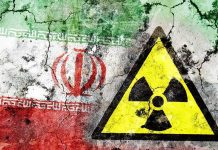
Trump’s administration is waging all-out financial warfare on Mexican drug cartels, freezing assets and threatening criminal prosecution for any business caught aiding these deadly organizations now labeled as terrorist groups.
Key Takeaways
- The Trump administration has designated certain Mexican cartels as terrorist organizations, allowing for powerful financial sanctions and criminal prosecution of their business partners
- Five leaders of the Cartel de Jalisco Nueva Generacion (CJNG) have been sanctioned, with rewards up to $15 million offered for information leading to arrests
- Companies operating in regions with cartel activity face increased scrutiny and must implement stronger due diligence protocols to avoid severe penalties
- CJNG controls facilities producing fentanyl, methamphetamine, and cocaine that are trafficked into the U.S., contributing to the deadly drug epidemic
Cartels Now Face Terrorist Designation and Financial Stranglehold
The Trump administration has dramatically escalated its battle against Mexican drug cartels by designating certain organizations as Foreign Terrorist Organizations (FTOs), a move that brings the full weight of American financial enforcement mechanisms against these criminal enterprises. This designation allows the government to block any transactions between these cartels and U.S. entities, effectively cutting off their access to legitimate business channels and financial systems. The strategy represents a significant shift in approach, treating these organizations not merely as criminal enterprises but as national security threats requiring the same level of response as other terrorist groups around the world.
Deported 40 Times – Trump Still Cleaning Up Biden’s Mess, Jasmine Crocket, Chucky Schummer, the entire DNC and Soros.
Here’s a number that should make every American furious: 40.That’s how many times Julian Estrada-Garcia, a 36-year-old illegal alien from Mexico, has been… pic.twitter.com/08D6ITIImM
— Stan Speer (@StanSpeer1) April 5, 2025
Companies now face serious legal jeopardy if they engage with designated cartels, even inadvertently. Both civil penalties and criminal prosecution are potential consequences for businesses that fail to properly screen their partners and transactions. This was recently demonstrated when two Utah men were federally indicted for allegedly supporting Mexican cartels through a Texas-based crude oil company, highlighting the administration’s willingness to pursue those who facilitate cartel operations through seemingly legitimate business ventures. The designation forces multinational corporations to completely reassess their risk exposure in regions where these cartels operate.
Treasury Department Targets Powerful Jalisco Cartel
In a direct application of this strategy, the U.S. Department of the Treasury has imposed sanctions on five leaders of the Cartel de Jalisco Nueva Generacion (CJNG), one of Mexico’s most powerful and violent criminal organizations. These sanctions align with Executive Orders 14059 and 13224, which target foreign organizations involved in the global illicit drug trade. Among those sanctioned is the cartel’s notorious leader, Ruben Oseguera Cervantes, known as “El Mencho,” for whom the U.S. government is offering a $15 million reward for information leading to his arrest. This represents one of the largest bounties ever offered for a cartel leader.
CJNG has evolved into a transnational criminal empire with tentacles reaching far beyond Mexico. The organization controls production facilities for fentanyl, methamphetamine, and cocaine while using the port of Manzanillo as a strategic hub for international trafficking operations. Their criminal portfolio extends beyond drugs to include extortion, migrant smuggling, oil and mineral theft, and weapons trading. The cartel has established a global presence with operations documented in Australia, China, and throughout Southeast Asia, making them a truly international threat requiring coordinated enforcement action.
Businesses Face New Compliance Challenges
The Trump administration’s aggressive stance on cartels has created significant new compliance challenges for legitimate businesses operating in or near regions with cartel activity. Companies must now strengthen their due diligence protocols for third-party partners and update contracts to include specific anti-cartel and anti-TCO clauses. Those failing to adapt to this new enforcement landscape risk severe penalties, including possible criminal prosecution. Business leaders are being advised to leverage existing compliance frameworks like OFAC screening while developing specialized procedures focused specifically on identifying potential cartel connections.
The brutality of organizations like CJNG underscores why such severe measures are necessary. The cartel has been implicated in horrific crimes, including murdering students and using severed human heads as warnings to rivals and government officials. They’ve also engaged in sophisticated fraud schemes targeting timeshare owners, demonstrating their ability to operate in both ultra-violent criminal spheres and more complex financial fraud. This combination of extreme violence and business sophistication makes them particularly dangerous adversaries, requiring the full spectrum of governmental enforcement tools to combat effectively.



